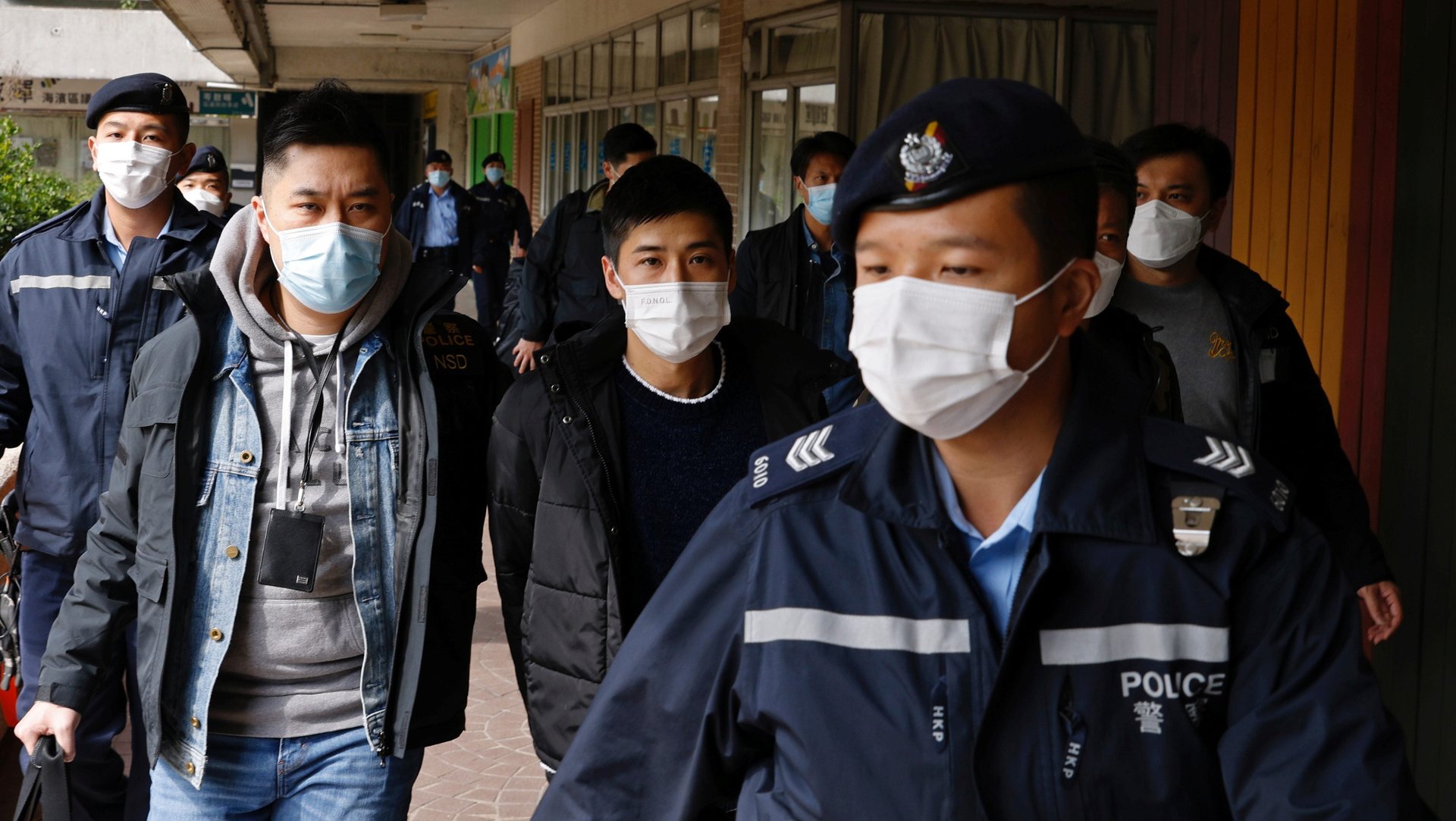Hong Kong is setting up a billion-dollar fund to implement its national security crackdown
Hong Kong government’s budget has a brand new line item: a HK$8 billion ($1 billion) fund for “safeguarding national security.”


Hong Kong government’s budget has a brand new line item: a HK$8 billion ($1 billion) fund for “safeguarding national security.”
Since Beijing unilaterally imposed sweeping national security legislation on Hong Kong last June, authorities have cracked down on the city’s protest movement, and the broader civil society, in order to snuff out all traces of dissent.
The campaign of repression has been swift and comprehensive, ranging from putting political pressure on courts and judges and bringing the public broadcaster RTHK under stricter government control, to engineering the expulsion of opposition lawmakers and rewriting electoral rules so that only “patriots” can run for office.
Now, in the government’s latest budget for 2021-22 fiscal year, a special fund has been set up to bankroll the continuing crackdown. The $1 billion set aside (pdf) will go towards financing the city’s growing national security apparatus, including a special national security unit within the police force, a national security office that is not subject to local jurisdiction, and a division in the justice department tasked specifically with prosecuting national security cases.
Other parts of the budget also offer useful clues to how the government is financing its repression. For example, the coming fiscal year’s estimated expenditure on internal security—which comprises thing like government security policies, law and order, and crime prevention—is HK$837 million (pdf). That figure is almost triple what the government spent in the 2018-19 fiscal year, just before the 2019 protests erupted in June.
While security spending did not much increase immediately after the 2014 Umbrella Movement, when protesters peacefully occupied swaths of downtown Hong Kong to demand direction elections for the city’s leader, there was a marked uptick in 2017. That July was the 20th anniversary of Hong Kong’s handover from British colonial rule to Chinese sovereignty. It also marked the first time Chinese leader Xi Jinping laid down a “red line” for the city, warning against “any attempt to endanger China’s sovereignty and security.”
Closely related to internal security expenditure is government spending on prison management (pdf). On that front, the budget has grown to over HK$3.5 billion, up from just under HK$3 billion in the 2018-19 fiscal year, before the mass protests.
A total of 99 individuals have been arrested since the June security law was enacted, the overwhelming majority of whom have been charged with political crimes like inciting secession and colluding with foreign forces. Only one person has been charged with a violent crime, a man accused of terrorism for allegedly driving his motorbike into a crowd of police officers.
Meanwhile, the embattled public broadcaster RTHK will see a roughly 5% reduction in its budget. Just last week, a career bureaucrat with no previous journalism experience was installed as RTHK’s new director of broadcasting. The move came after the broadcaster pulled BBC programming in the wake of Beijing’s ban of the British broadcaster.
Budgeted government spending on “constitutional and mainland affairs”—which includes working with Beijing on constitutional matters and implementing Hong Kong’s mini constitution, known as the Basic Law—is largely the same as last fiscal year, at HK$199 million (pdf). But it’s almost double the HK$111 million that was spent just five years ago (pdf).
Just yesterday, Hong Kong’s secretary for constitutional and mainland affairs, Erick Tsang, made clear what the expectations are for a “patriotic” Hong Konger. “You cannot say that you are patriotic but you do not love the leadership of the Chinese Communist Party or you do not respect it—this does not make sense,” he said. “Patriotism is holistic love.”
That “love,” it appears, will also show up on the balance sheet.